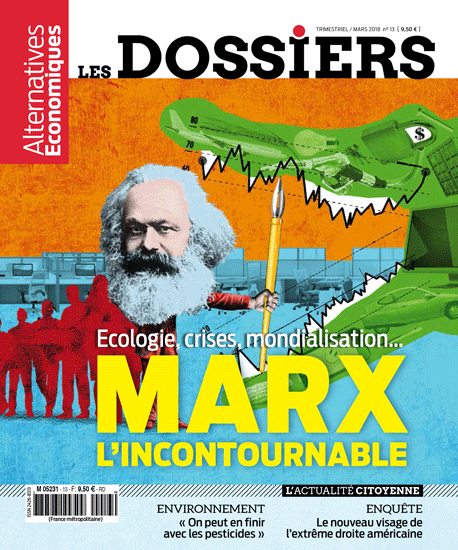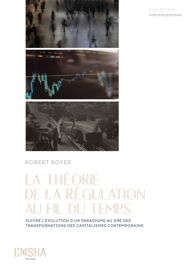Entretien avec Robert Boyer et Jean-Marc Daniel, Alternatives Economiques, Les dossiers : Marx l’incontournable, p. 79.
Prepared for the Research conference “Pushing the Growth Models Agenda Forward”, Max Planck Institute for the Study of Societies, Cologne, May 23 and 24, 2018
Mooc « C’est quoi l’éco ? » ENS de Lyon.FUN.Mai 2017, Entrevue, Séance 6.4- Les politiques économiques en France et en Europe. Robert BOYER, Alain TRANNOY
Postface à l’ouvrage Penser la longue durée. Contribution à une histoire de la mondialisation, Editions La Découverte, Avril 2018, p. 237-306
Suivre l’évolution d’un paradigme au gré des transformations des capitalismes contemporains, R. Boyer (dir), Avril 2018, Editions des maisons des sciences de l’homme associées, Collection interdisciplinaire EMSHA , La Plaine Saint Denis
Le présent ouvrage propose au lecteur un aperçu sur la trajectoire intellectuelle d’un groupe de chercheurs qui se sont attachés à éclairer certaines questions liées à la recherche sur l’économie et la société selon les approches développées par la Théorie de la Régulation, ceci à travers un permanent aller-retour entre les enseignements et prédictions du cadre conceptuel élaboré pour rendre compte de la rupture des Trente glorieuses et de la réalité des évolutions observées depuis lors.
La particularité du présent ouvrage est de donner à voir l’ajustement de ce paradigme d’année en année jusqu’à la période contemporaine. En quelque sorte, il propose de visiter le laboratoire d’où sont sorties les nombreuses publications dérivées de la Théorie de la Régulation.
in Des sciences sociales à LA science sociale. Fondements anti-utilitaristes, Sous la direction de Alain Caillé, Philippe Chanial, Stéphane Dufoix et Frédéric Vandenberghe, 2018, Editions le bord de l’eau, Chap. III, p. 65-81
Au moment où la querelle fait rage entre les sociologues en France, comme il y a un an entre les économistes, il est urgent de rappeler que le mot « sociologie » a longtemps servi à désigner la science sociale en général (économie et philosophie politiques incluses, aussi bien que l’anthropologie, l’histoire ou la géographie) et qu’elle est une chose trop importante pour la confier aux seuls sociologues. Elle est l’affaire de tous les social scientists. À côté des sciences sociales spécialisées, c’est une science sociale généraliste, seule à même de penser le monde dans toute sa complexité, qu’il nous faut maintenant faire advenir et instituer. Une science sociale qu’il est urgent, également, de fonder une bonne fois sur des bases non-utilitaristes et dans une ouverture résolue à toutes les sociologies et à toutes les sciences sociales du monde entier, et pas seulement à celles qui viennent de l’occident. Replacées dans ce cadre plus général, la plupart des querelles de chapelles se résolvent d’elles-mêmes. Pour le plus grand bien d’un désir partagé de connaître. Qu’un tel objectif soit accessible, c‘est ce dont témoignent la variété et la qualité des auteurs ici réunis, anthropologues, économistes, géographes, historiens, philosophes ou sociologues.



